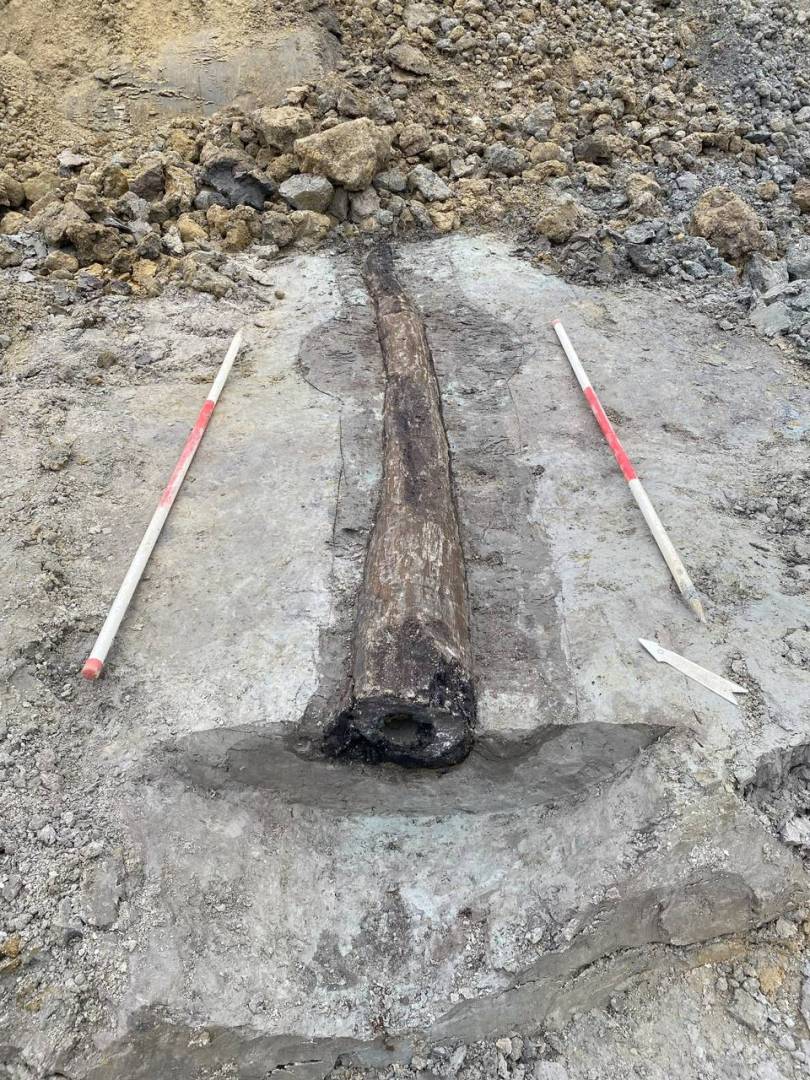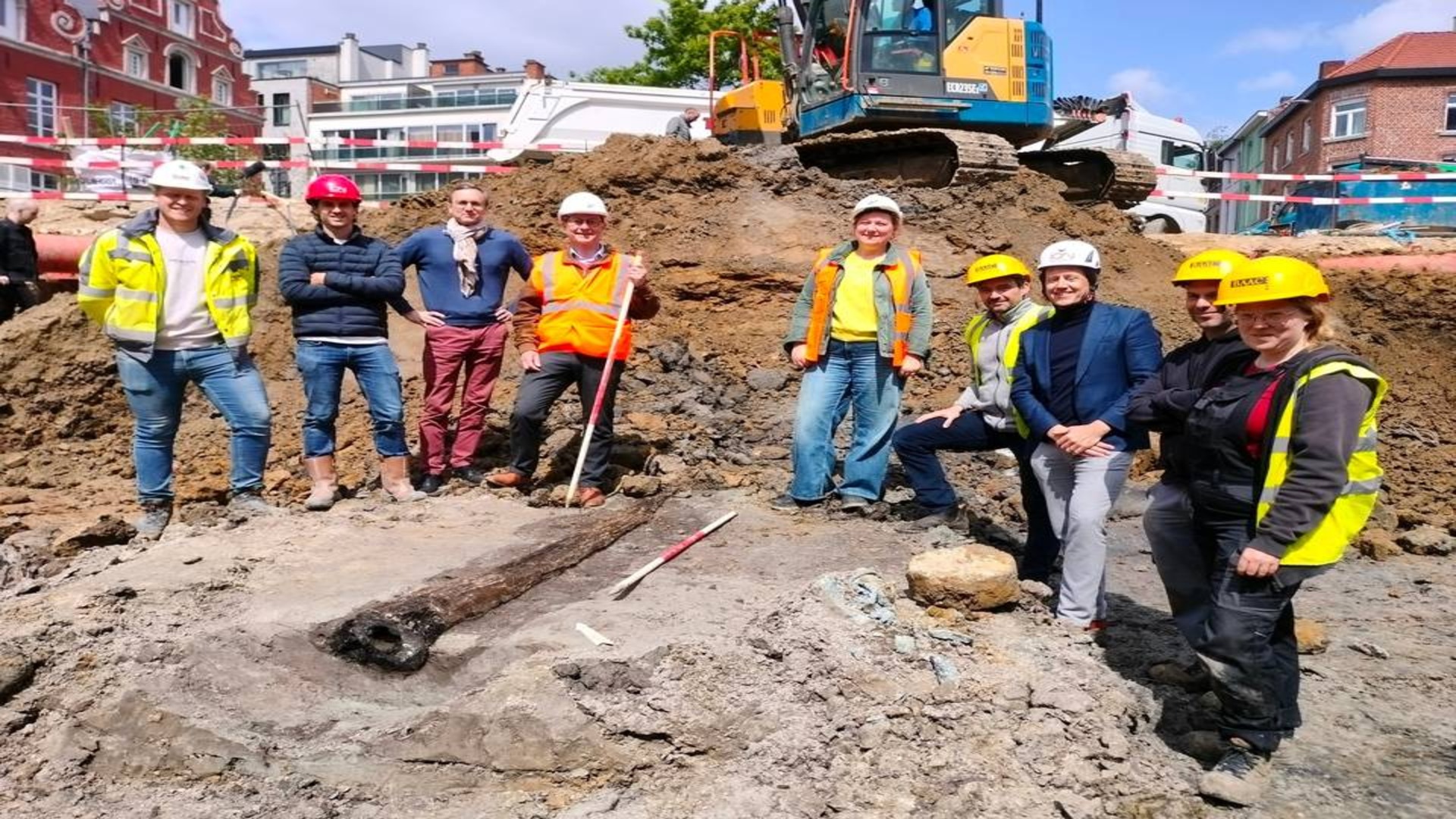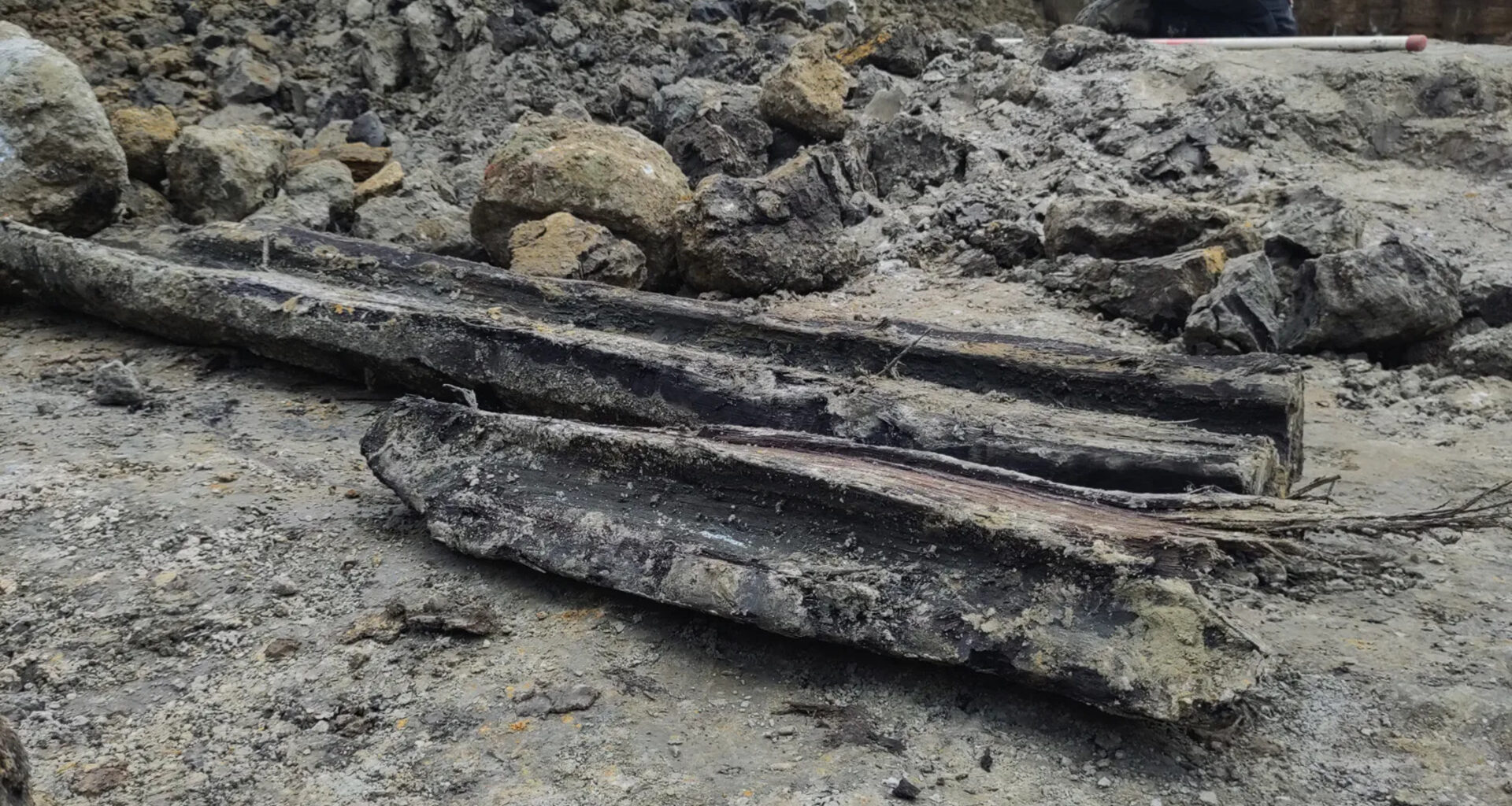Archaeologists discovered a rare and exceptional piece of Roman history at a future student residence: a well-preserved wooden water pipe, a first for the Flanders region.
While digging through the soil at the Blauwe Hoek on Brusselsestraat, construction workers were stunned to stumble upon a Roman wooden water pipe described by the city council in a press release as “a unique find.”
The marshy soil in Leuven preserved the organic circuit as the material disintegrates unless preserved in a low-oxygen environment. Previously, evidence had surfaced that wooden pipes might have been used in the region. However, a physical sign had never been found—until now.
Thought to date between the 1st and 3rd centuries, the find suggests that the upcoming student residence was once a prosperous Roman settlement, as sophisticated technology such as the wooden pipe would have been installed in such an affluent town.
 Roman wooden pipe City of Leuven
Roman wooden pipe City of Leuven
Roman wooden pipes
According to Archaeology Magazine, the pipeline, located about 13 feet beneath the ground and extending 65 to 100 feet long, was constructed from hollow tree trunks measuring around six feet each.
In the second and third centuries AD, Leuven was a “diverticulum,” or a settlement of several houses and farms at a crossroads, close to a military road that connected to the great connecting axis between Cologne and Boulogne, as per a press release.
Alderman Dirk Vansina explains that the future student residence likely sat at the crossroads where the Dijle could be forded. The Djile preserved the wooden water pipe for centuries, enabling archeologists a rare glimpse at this relic of Roman engineering.
“This is a unique archaeological find in Flanders,” says Vansina.
Smaller finds had been uncovered, such as pottery, roof tiles, and even medieval remains, such as cesspits, coins, and pottery. A water pipe is of a different caliber. Traces of such pipes had surfaced in cities like Tienen and Tongeren, but the pipes had long since decayed, but not this one, as per Archaeology News.
“Indications of what used to be a wooden Roman water pipe have been excavated at numerous locations, including Tienen. But never the water pipe itself, because the wooden tree trunks that the Romans used for this had rotted away over time. “Due to the proximity of the Dijle, the subsoil here was always marshy and the ravages of time have been very gentle on this water pipe,” continues Vansina in a press release.
 Wooden pipe / City of Leuven
Wooden pipe / City of Leuven
Leuven, a bigger settlement than once thought
Though it was known that Leuven was a settlement at a strategic crossroads, archaeologists were surprised by signs of a Roman pumping installation. This suggests a more advanced system of water management and, thus, a higher-status assignment to the town than previously understood.
“Although the size of Leuven in Roman times was limited, finds like this prove that the Roman presence here was certainly not incidental,” said Dirk Vansina, told Archaeology News.
The wooden pipes have been removed from the ground for further study and conservation. Tree ring analysis will be used to determine their exact age, and the remains of advanced engineering will most likely be put on display soon.
